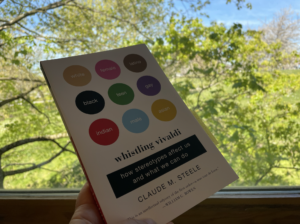
Reminding myself of “Whistling Vivaldi: How stereotypes affect us and what we can do” (Steele, 2011)
As I was gathering my favorite three books on learning and teaching to wave at the participants of our “introduction to teaching and learning” course today, I realized I never…
